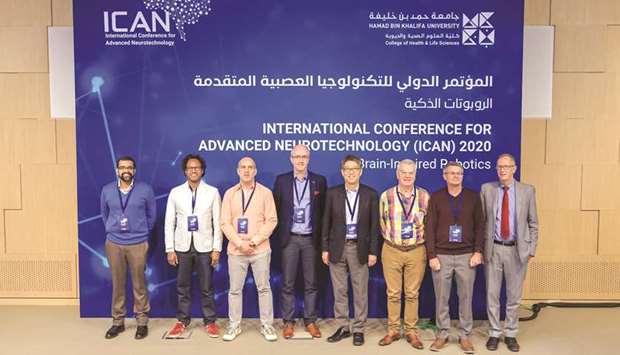The College of Health and Life Sciences (CHLS) at Hamad Bin Khalifa University (HBKU) recently hosted the International Conference for Advanced Neurotechnology (ICAN 2020), attracting leading lights in neurotechnology and related fields to Doha.
The theme of ICAN 2020 was merging advancements in understanding the computational skills of the brain.
Issues and topics up for discussion included the development of mathematical algorithms that translate computational parameters into the language of machines.
Consideration was also given to the availability of high density and throughput data capture analysis schemes for the creation of human-like robotic learning and intelligence.
ICAN 2020 was hosted by Dr Edward Stuenkel, founding dean of CHLS.
The institutional partners for this year’s conference included the University of Michigan and New York University.
A series of keynote speeches were delivered by experts and esteemed thought leaders from academia and the private sector. Subjects included nanodevices for bio-inspired computing, building neuromorphic computers, and neural mechanisms for planning, decision making, neural prosthetics and brain repair.
“The main theme of ICAN 2020 could not have been more relevant. Humanoid robotics have left the drawing table and history books and are part of everyday living. Human brain-inspired intelligent devices are driving the ascent of modern robotics. These rely on silicon-based electronics with circuitry driven toward the creation of fully cognitive silicon brains. They remain a work-in-progress requiring due care and attention,” Dr Stuenkel said.
“To this end, it was an honour to host ICAN 2020. Doing so not only underlined Qatar’s ability to stage conferences and events with a global reach, but also the CHLS’ growing reputation in the fields of biomedical sciences, genomics and precision medicine. Finally, I’d like to pay tribute to our institutional partners. Their inputs, contributions and overall support in the buildup to the conference were invaluable.”
Each year, ICAN gathers neuroscientists and neuro-engineers from around the world to review recent technological and philosophical advancements in neurotechnology, big data analytics and neuroscience.
Proceedings typically focus on the development and application of next-generation tools to advance neuroscience.
Efforts to enhance the translation of technology to the science community are also discussed.

The event gathers neuroscientists and neuro-engineers from around the world.
